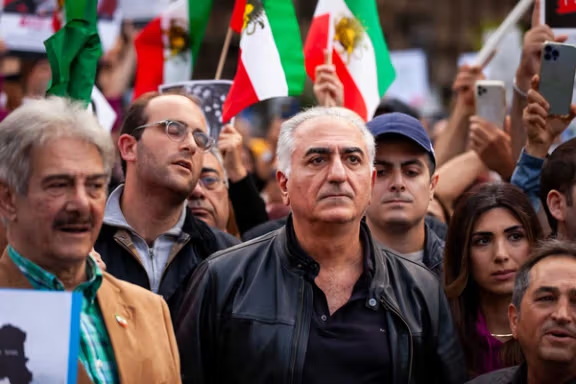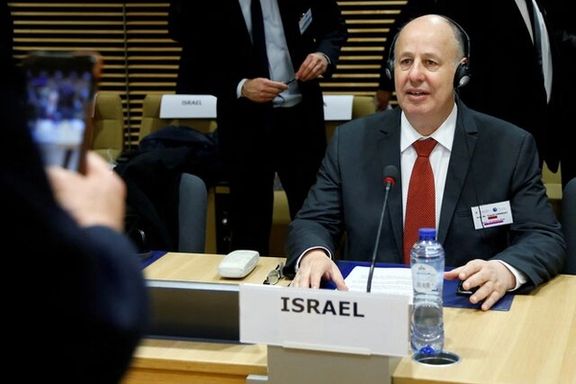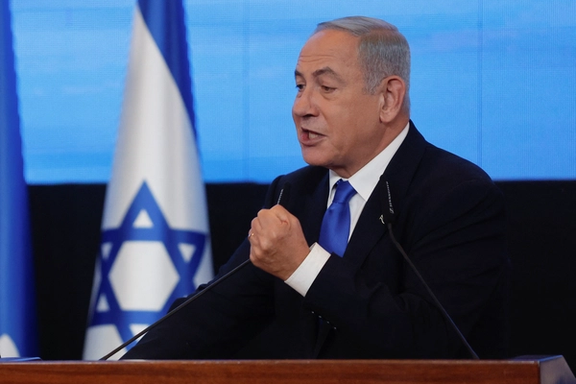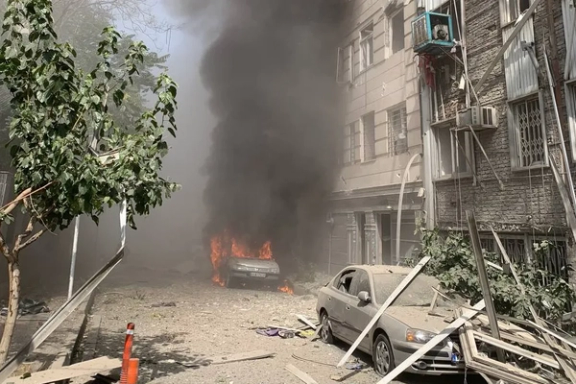This live blog is now closed. Follow the latest updates in our new live coverage here.
Israeli military says missiles launched from Iran, defense systems activated
The Israeli military says missiles were launched from Iran toward Israeli territory, and that defense systems are working to intercept the threat.
"A short while ago, alerts were activated in several areas of the country following the discovery of missiles launched from Iran into the territory of the State of Israel," the Israeli military said in a statement on X.
Iran's IRGC-affiliated Fars News also reported the beginning of a new round of Iranian attacks.
Khamenei using people as shield while hiding like a rat, exiled prince says
Iran’s exiled crown prince accused Supreme Leader Ali Khamenei of using the Iranian people as human shields while hiding “like a rat in an underground tunnel,” saying he alone bears responsibility for dragging the country into the current conflict with Israel.
"What angers me further is that he is using my compatriots as a human shield, while he is currently hiding in some underground tunnel like a rat," @PahlaviReza said in an interview with Fox News. "This is not the Iranian people’s war. It is Ali Khamenei’s war, and he is solely and ultimately responsible for having brought us to this stage."
Pahlavi added that senior Iranian government officials have already sent their families abroad. “We have had reports that senior members and officials have already had their families fleeing the country to foreign destinations,” he said.

Israel launches wave of strikes on missile targets in western Iran, military says
The Israeli military says it has launched a wave of strikes on dozens of ground-to-ground missile targets in western Iran.
Israel denies Trump vetoed its plan to kill Khamenei - Channel 12
"The Reuters report that Trump vetoed the assassination of Iran's Supreme Leader Ali Khamenei is false. There is no immunity for political leaders," Israel's Channel 12 reported citing National Security Council chief Tzachi Hanegbi.

Netanyahu confirms killing of IRGC intelligence chief and deputy in Tehran strike
Prime Minister Benjamin Netanyahu confirmed that Israel killed Revolutionary Guards (IRGC) intelligence chief Mohammad Kazemi and his deputy Hassan Mohaqeq in a strike in Tehran.
“We decided to act because we had to. We saw enough enriched uranium for nine bombs. We are attacking their nuclear sites. We attacked their senior command, and I can update that just moments ago we also eliminated their intelligence chief and his deputy in Tehran,” Netanyahu said in an interview with Fox News.
Earlier, Iran International reported that Kazemi and Mohaqeq were trapped under rubble following an Israeli strike on the IRGC intelligence organization’s building in Tehran.
Regime change in Iran could be result of Israeli attacks, Netanyahu says
A regime change in Iran "could certainly be the result because the Iran regime is very weak," Israeli Prime Minister Benjamin Netanyahu told Fox News.

Israel strikes Bidganeh missile site west of Tehran
Trump vetoed Israeli plan to kill Iran’s Supreme Leader - Reuters
US President Donald Trump vetoed an Israeli plan to assassinate Iran’s Supreme Leader in recent days, Reuters reported citing two unnamed US officials.
Israeli Prime Minister Benjamin Netanyahu declined to comment on the Reuters report. "I'm not going to get into that," Netanyahu told Fox News.
Axios quoted a US official as saying the Israelis had an opportunity to kill Khamenei, but the US told them Trump was opposed to that.
"The Iranians haven't killed an American, and discussion of killing political leaders should not be on the table," the US official was quoted as saying.
